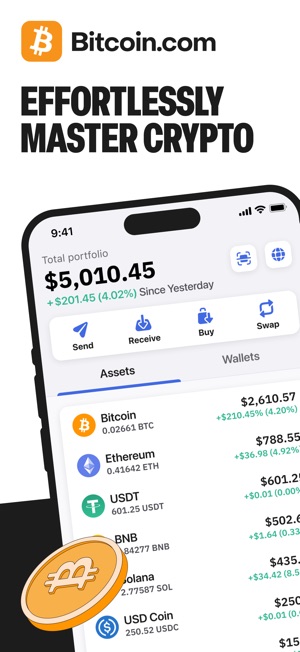
In recent years, the financial landscape has been transformed by the rise of cryptocurrency. Among the various cryptocurrencies, Bitcoin, often referred to as BTC, stands out as the pioneering digital currency. As its popularity grows, businesses are increasingly looking for ways to accommodate this new form of payment. This has led to the emergence of BTC Payment Processor, which serve as the bridge between traditional currencies and cryptocurrency transactions. In this article, we will delve deep into what Bitcoin payment processors are, how they work, their advantages and disadvantages, and their future in the world of finance.
What is a Bitcoin Payment Processor?
A Bitcoin payment processor is a service that enables merchants to accept Bitcoin payments for goods and services. These processors handle the technical aspects of accepting cryptocurrency, allowing businesses to focus on their core operations. By integrating with a merchant’s existing payment systems, BTC payment processors facilitate seamless transactions for both the seller and the buyer. They provide necessary tools like payment buttons, invoicing, and more, which simplify the payment process for users who may not be familiar with cryptocurrency.
How Do Bitcoin Payment Processors Work?
The functionality of Bitcoin payment processors revolves around a few core processes. When a customer decides to make a purchase using Bitcoin, the payment processor takes charge of handling the transaction. Here’s a step-by-step breakdown of how it typically works:

- The merchant integrates the payment processor into their website or application.
- Upon checkout, the customer selects Bitcoin as their payment option.
- The payment processor generates a unique Bitcoin address for the transaction.
- The customer sends the required amount of Bitcoin to this address from their wallet.
- The payment processor verifies the transaction on the Bitcoin network.
- Once confirmed, the payment processor notifies the merchant, completing the transaction.
Benefits of Using Bitcoin Payment Processors
There are numerous advantages to integrating a BTC payment processor into a business model. Some of the most notable benefits include:
- Lower transaction fees: Bitcoin transactions often involve lower fees compared to traditional credit card processors, which can greatly benefit businesses.
- Faster transactions: Bitcoin transactions can be processed quickly, allowing for smoother purchase experiences, especially for international sales.
- Global reach: Businesses can attract international customers who prefer to pay with Bitcoin, significantly widening their market.
- No chargebacks: Bitcoin transactions are irreversible, which can help reduce fraud and chargeback issues that plague credit card transactions.
Challenges of Bitcoin Payment Processors
Despite their many advantages, Bitcoin payment processors also face several challenges that businesses must consider. Some of these include:
- Price volatility: The value of Bitcoin can fluctuate dramatically, which could affect pricing strategies and profit margins.
- Regulatory concerns: The legal landscape surrounding cryptocurrency is still evolving, and businesses must stay informed about relevant regulations.
- Technical complexity: For some businesses, integrating Bitcoin payment systems can pose technical challenges, requiring specialized expertise.
- Limited consumer adoption: While interest in cryptocurrency is growing, a significant portion of consumers still prefers traditional payment methods.
Choosing the Right Bitcoin Payment Processor

When selecting a BTC payment processor, businesses should evaluate several key factors to find the best fit for their needs. Here’s what to consider:
- Fees: Compare the fee structures of different processors to find the most cost-effective option.
- Ease of integration: Look for processors with comprehensive documentation and support to ease the integration process.
- Supported currencies: Ensure the processor supports not just Bitcoin, but possibly other cryptocurrencies as well.
- Security features: Analyze the security measures each processor has in place to protect transactions and user data.
- Customer support: Good customer support can be invaluable, especially for businesses new to cryptocurrency.
The Future of Bitcoin Payment Processors
The landscape of Bitcoin payment processing is constantly evolving as technology and consumer preferences change. As Bitcoin becomes more mainstream, and more businesses recognize its potential, we can expect several trends to impact the future of BTC payment processors:
- Increased adoption: More businesses are likely to start accepting Bitcoin as payment, spurred by the growing awareness and acceptance of cryptocurrencies.
- Advancements in technology: As blockchain technology matures, payment processors may become even more efficient and secure.
- Regulatory clarity: Hopefully, clearer regulations will emerge, providing businesses with more guidance on how to operate legally within the crypto space.
- Integration with existing financial systems: We may see more collaboration between traditional banks and Bitcoin payment processors, creating more hybrid payment options.
Conclusion
Bitcoin payment processors are at the forefront of a financial revolution, providing a valuable service in facilitating cryptocurrency transactions. As more businesses start accepting Bitcoin, the demand for effective payment processing solutions will continue to grow. By understanding the workings and intricacies of BTC payment processors, businesses can position themselves favorably in a rapidly changing market. Whether you’re a small startup or an established enterprise, the innovative world of Bitcoin payments can unlock new opportunities for growth and customer engagement.

